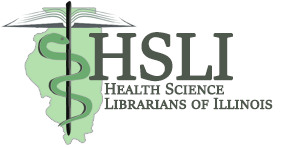(via Melissa Johnson, Southern Methodist University)
Registration is now open for the free second annual Generative AI in Libraries (GAIL) Conference. This year features two keynotes by AI experts in our field. GAIL is a free virtual conference aimed specifically at librarians that seeks to explore the use of generative artificial intelligence (AI) in libraries. It is also an opportunity for librarians to share their experiences with generative AI technologies and their applications in the library setting.
Scheduled to take place June 9, 10, 11, and 12 (Monday-Thursday) from 12:00 to 3:00 PM CDT each day, GAIL aims to promote a deeper understanding of how generative AI can revolutionize library services like instruction, research support, collection management, access services, outreach and collaboration, while also addressing the challenges and ethical considerations this new technology brings to libraries. View more details at the Conference website and register online.
Live participation is limited to 1,000 people. Overflow can still watch via the Lobby preview in Zoom.
Keynote Speakers
Opening Keynote: “Ships and Shipwrecks: How Public Libraries will Navigate the Age of AI”
Nick Tanzi, Assistant Director, South Huntington Public Library
The age of AI is here, and its arrival comes with plenty of uncertainty! How are public libraries interacting with generative AI? What is an appropriate relationship with this technology? Finally, what role can libraries play in promoting AI literacy in our communities?
Closing Keynote: “A Framework for AI Pragmatism”
Michael Flierl, Associate Professor & Student Learning Librarian, The Ohio State University
The future of AI is not predetermined; we have the power to shape its trajectory. This keynote presents AI Pragmatism, a practical framework for action that empowers libraries to influence AI development in alignment with professional values. Drawing inspiration from John Dewey’s philosophy, we will explore how libraries can foster student-centered learning environments and serve as laboratories for ethical, human-centered AI use. By engaging actively with AI, we can ensure these technologies solve problems, serve the public good, and advance our shared values.
For inquiries or further information, please contact gailconferencesupport@googlegroups.com.
